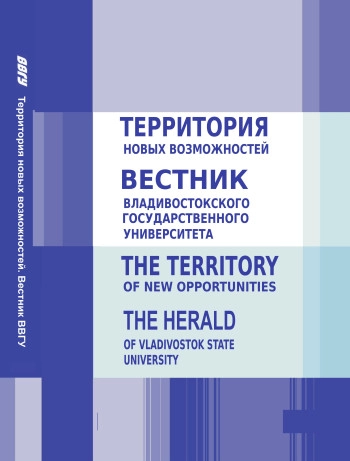employee
Lugansk, Russian Federation
The article is devoted to the problems of differentiation of various forms of state regime. Scientific and public views on the definition and features of a democratic state regime are studied. The essential differences between democratic and liberal regimes are revealed, their antagonism in the implementation of individual areas of state power is shown. The expediency of differentiating the forms of state regime based on a dualistic approach with the allocation of two classification features characterizing individual aspects of the state regime – the source of state power and the limits of the implementation of state power is substantiated. It is proposed to subdivide the forms of state regime depending on the source of state power into democratic and anti-democratic. Depending on the limits of the implementation of state power, it is proposed to differentiate liberal, authoritarian and totali- tarian regimes. A system of key features of democratic and anti-democratic regimes is formed. A comprehensive description of the essential criteria of liberal, authoritarian and totalitarian re- gimes is presented. A systemic analysis of German fascism and Soviet communism as the most strik- ing historical examples of a totalitarian regime is carried out. The article defends the idea that it is inadmissible to match these forms of state regime. The lack of a systematic and reasoned basis based on a clear list of key essential differences between Soviet communism and German fascism is noted as an important scientific problem. To solve this problem, basing on historical information derived from surviving documents and eyewitness accounts, the following key features of German fascism are iden- tified: nationalism; traditionalism; extremism in the implementation of state power; statism; corpora- tism; populism; militarism. In the characterization of the communist regime, features are identified, many of which are antipodes of the main features of fascism, namely: internationalism; collectiviza- tion; industrialization; universal education; state provision of health care for every citizen: the state ensures accessibility (free of charge) of medical care for every citizen, taking on the responsibility of financing medical institutions; state support for the norms of public morality; atheism as an element of official ideology; state provision of the implementation of the right to work in combination with the duty to work; state provision of a decent standard of living for the individual.
state regime, democratic regime, anti-democratic regime, liberal regime, authoritarian regime, totalitarian regime, fascism, communism
1. Constitution of the Russian Federation. Moscow: Eksmo; 2022. 96 p.
2. Olkov S.G. Proof of the fundamental law of political regimes and diagnostics of political regimes in Soviet and post-Soviet Russia. News of higher educational institutions. Ural region. 2019; (1): 3–16.
3. Cassiday J.A., Johnson E.D. Putin, Putiniana and the question of a post-soviet cult of personality. The Slavonic and East European Review. 2010; 88 (4): 681–707.
4. Howard M.M., Philip G.R. Liberalizing electoral outcomes in competitive authoritarian regimes. American Journal of Political Science. 2006; 50 (2): 365–381.
5. Transformation of the concepts of "capitalism" and "democracy" into the concept of "Westernism" in the views of Alexander Zinoviev / P.V. Sedayev, S.V. Ustinkin, A.V. Nikitin, A.S. Kochkurov. Technologies of social and humanitarian research. 2023; 2 (2): 15–21.
6. Code of the Russian Federation on Administrative Offenses. Moscow: Prospect; 2024. 848 p.
7. Makhtyuk S.O., Cherdantsev A.Yu. Law as a means of combating "hybrid genocide" in the era of the Second Cold War. Genocide: challenges of our time. Proceedings of the international scientific and practical conference. Moscow; 2024. P. 74–79.
8. Russia: Supreme Court Bans "LGBT Movement" as "Extremist". Human Rights Watch. URL: https://eu2-browse.startpage.com/av/proxy?ep=5047493649324974666a4572497a-4d32637a64304d486b704e7941314e337073515870674132467a42534d794d334533636968384b6a596d5a6d59444b6a6f6f6333706741335a78635764676 4686c754d58706-413364785a6d59444e696f73637a597a614463304d7959674b547079597a416e4e7a4273495455724e33497a5a7a306d61436b754e54456f495445724c546f714d54596b4c6a30324d486b73505367334a3249304a7a55784a574a6e596d5930636e78324a54416b4a5434364d576b786648516e65327768495778744e5477324a6e516e4a3349784e3249535644786a4378414164786b2f4a3234535158706841574679423349324e4749354e32593049334967656d52794a3264764e475a6c643346346347636e496d30374e446b304a436367653349784c446f795a5749324944496f4944466a4d32495a59544d68494749784d43643464513d3d&ek=58313953525552425131524652463966&ekdata=7288f2845376a8994f570a809e9f4680 (accessed date: 13.08.2025).
9. Yarmonova E.N. Liberal Regime as an Independent Type of Political Regimes. Strategies for Sustainable Development of Modern Society: Economic, Social, Philosophical, Political, Legal, Trends and Patterns. Proceedings of the International Scientific and Practical Conference. 2016: 128–130.
10. Vasiliev A.V. The idea of a self-regulating market and classical liberalism. Modern Science. 2021; (2-1): 341–345.
11. Bagrova E.V. Neoliberalism and its pathological branches. Eurasian Law Journal. 2021; 10 (161): 525–526.
12. Moiseenko Ya.Yu. Conformism as an Immanent Element of Totalitarian, Authoritarian and Liberal-Democratic Political Regimes. Bulletin of the Humanitarian University. 2017; 1 (16): 64–71.
13. Yarmonova E.N. Authoritarian regime as a type of political regimes. Modernization and sustainable development of modern society: economic, social, philosophical, political, legal, general scientific trends. Proceedings of the international scientific and practical conference. 2017: 104–106.
14. Karpov A.A. Modern totalitarianism and its varieties. Leningrad Law Journal. 2016; 1 (43): 52–58.
15. Constitution of the Islamic Republic of Iran of 11.15.1979 (as amended). Public free political and legal Internet library of Roman Pashkov. URL: https://constitutions.ru/?p=140 (accessed date: 08.08.2025).
16. Troynina T.V. Political and legal features of the development of mass media in the United Arab Emirates. Theory and practice of social development. 2014; (10): 120–123.
17. Tagibova E.Sh. Criminal legislation of the Islamic Republic of Iran. The world of modern science. 2011; 5 (8): 55–74.
18. Murphy Paul Austin (July 2013). "Red Fascism". New English Review. Archived from the original on 3 August 2018. Retrieved 25 March 2025. New English Review. URL: https://web.archive.org/web/20180803015856/www.newenglishreview.org/Paul_Austin_Murphy/Red_Fascism/ (accessed date: 28.08.2025).
19. Derbin P.E. On the Falsification of History: Why Fascism and Communism Cannot Be Equated. Russia and the World in Modern and Contemporary Times – from the Past to the Future. Proceedings of the XXV Anniversary Annual International Scientific Conference. 2019: 186–188.
20. Moiseev S.V. The Great Patriotic War and the Concept of Equivalence of Communism and Fascism. Regional Jubilee Scientific and Practical Conference Dedicated to the 70th Anniversary of Victory in the Great Patriotic War of 1941–1945. Conference Proceedings. Novosibirsk State University of Architecture, Design and Arts (former Novosibirsk State Academy of Architecture and Arts). Novosibirsk, 2015: 26–29.
21. Isaev A.A. German Fascism and Russian Communism: A Comparative Analysis in the Philosophy of Existentialism. State, Society, Church in the History of Russia in the Twentieth Century. Proceedings of the XIII International Scientific Conference. 2014: 88–95.
22. Dobroselsky A. Existential Natures of Communism and Fascism. Ryazan Theological Bulletin. 2020; 1 (21): 140–146.





